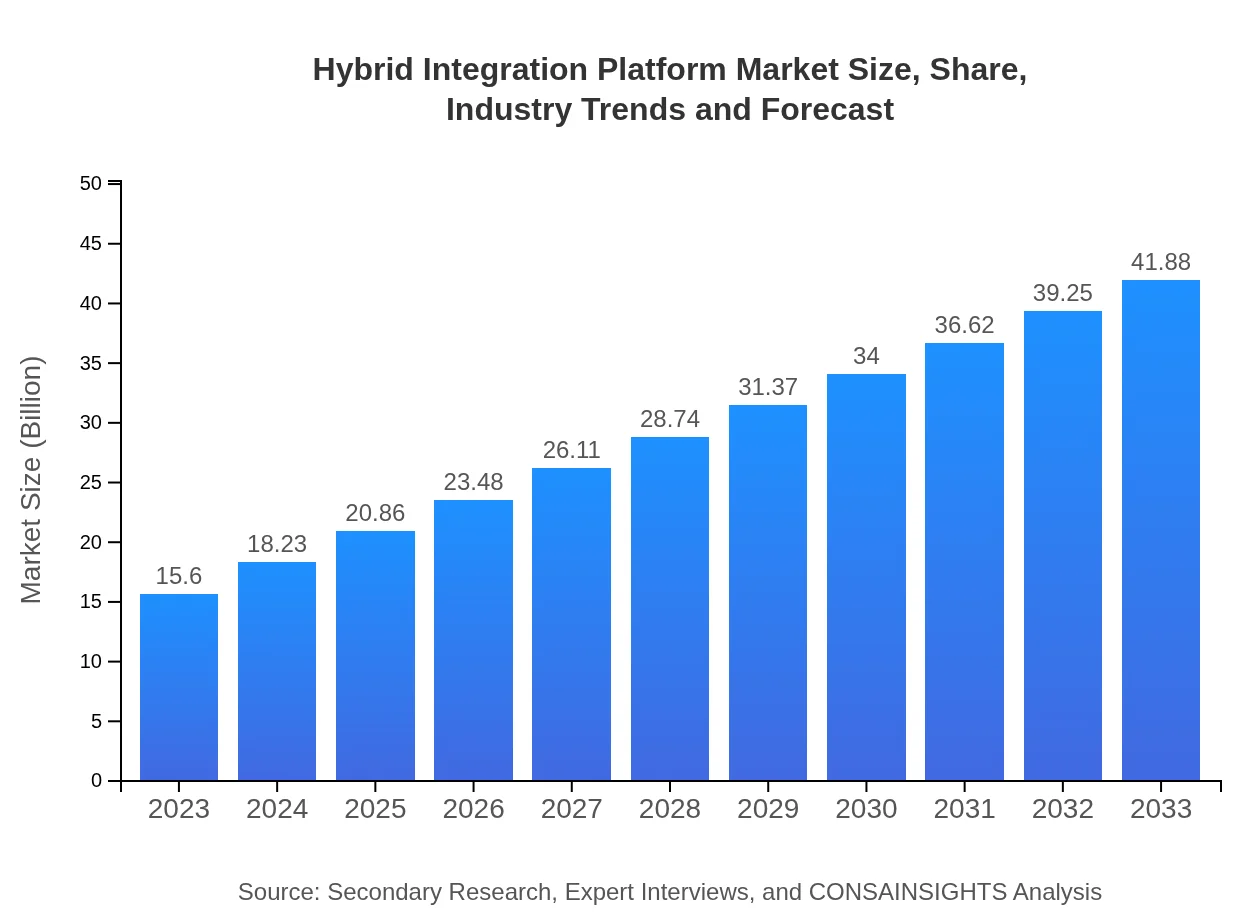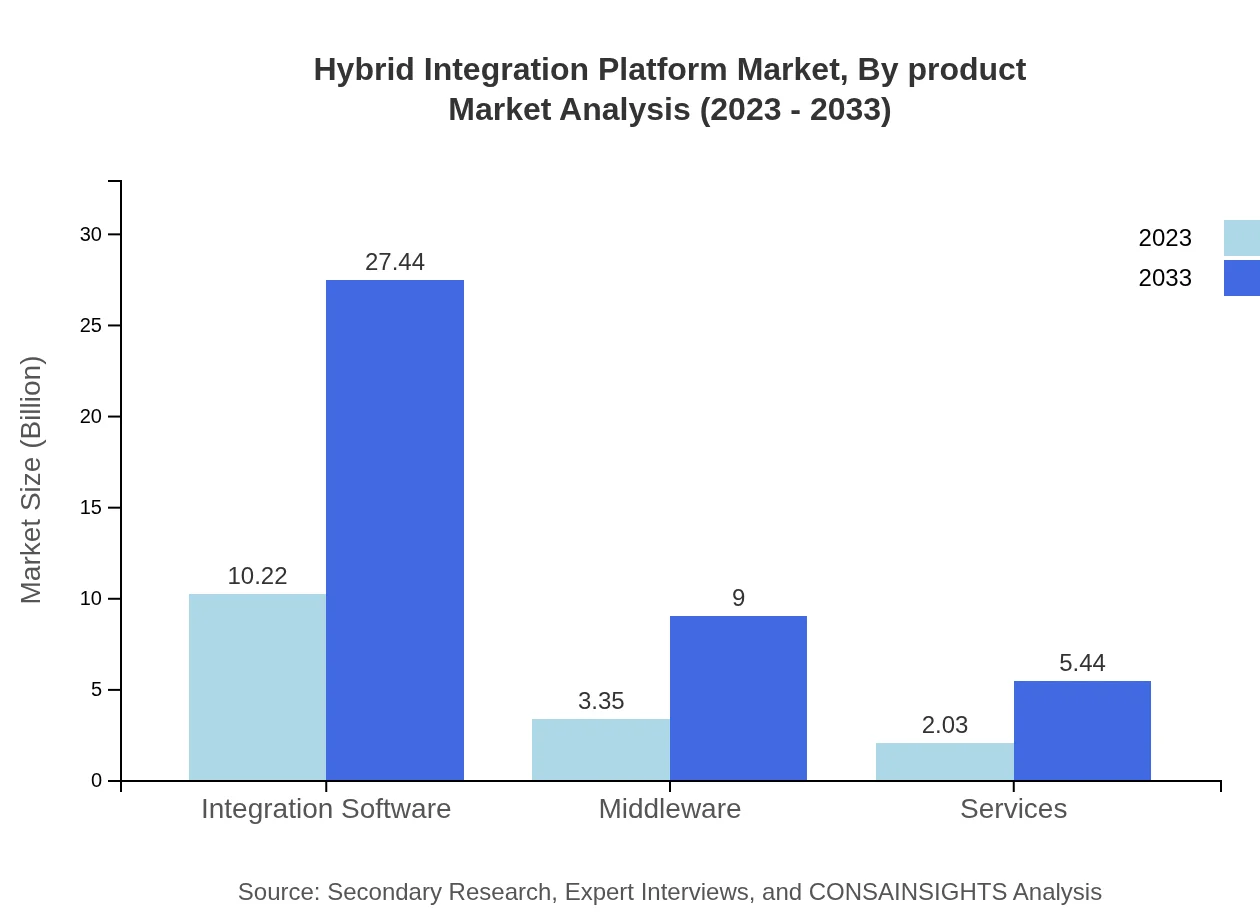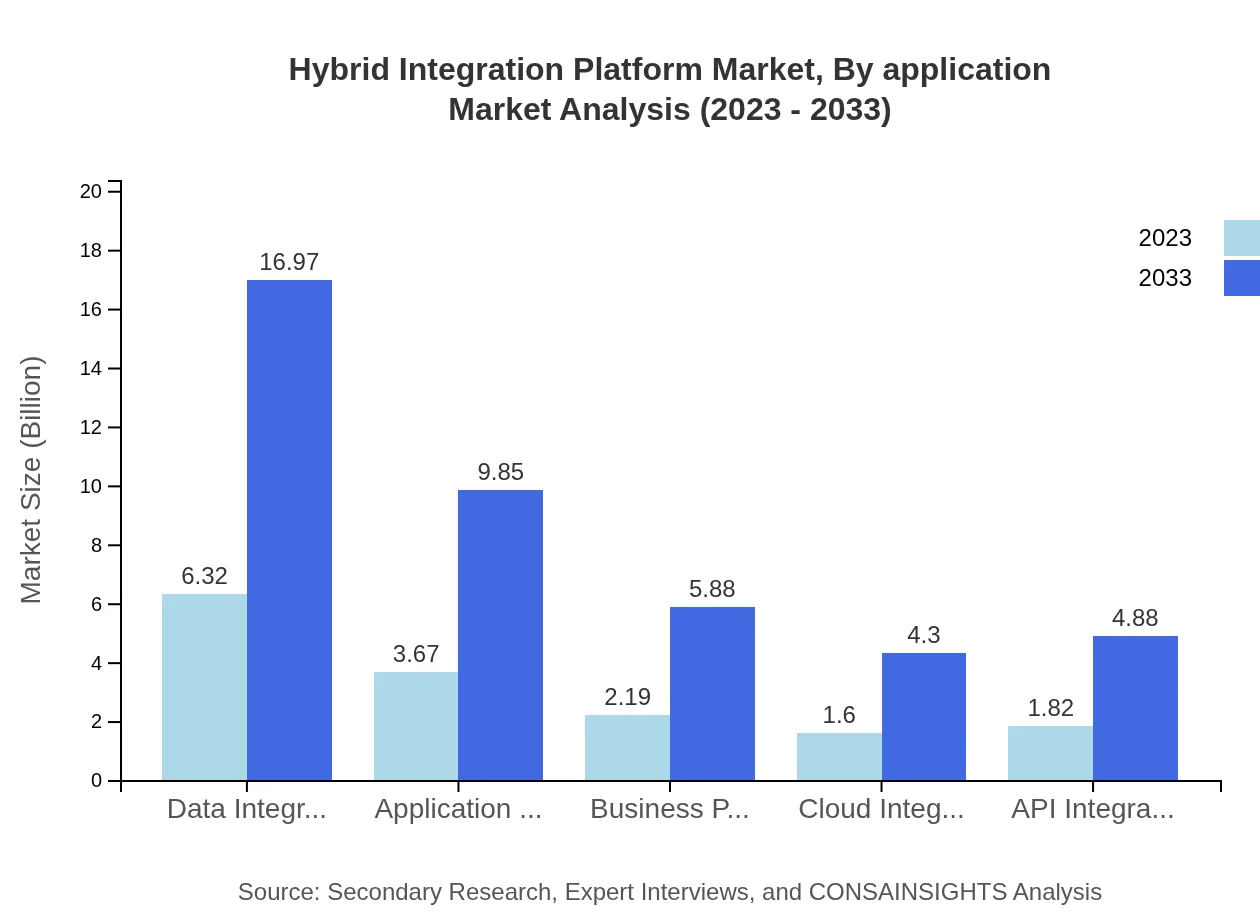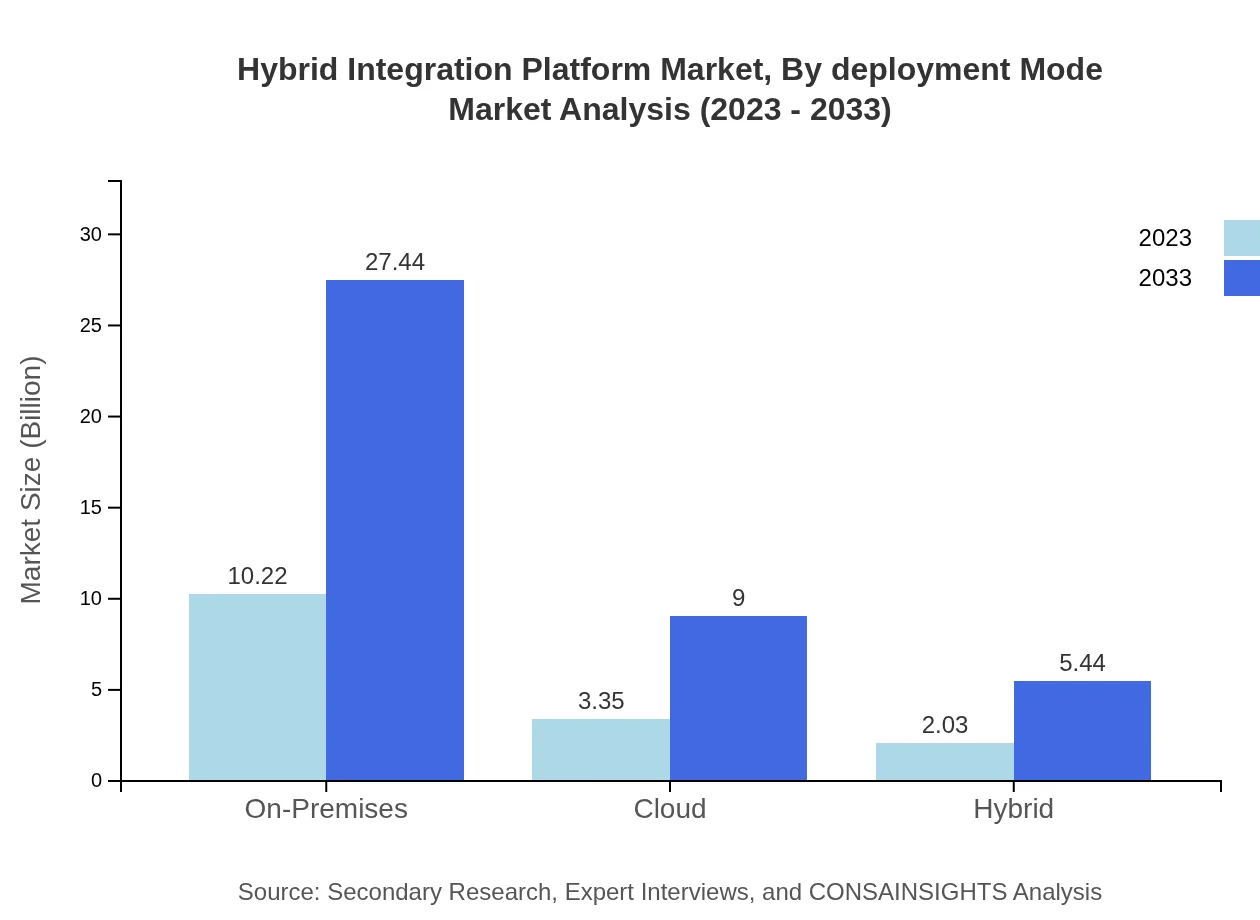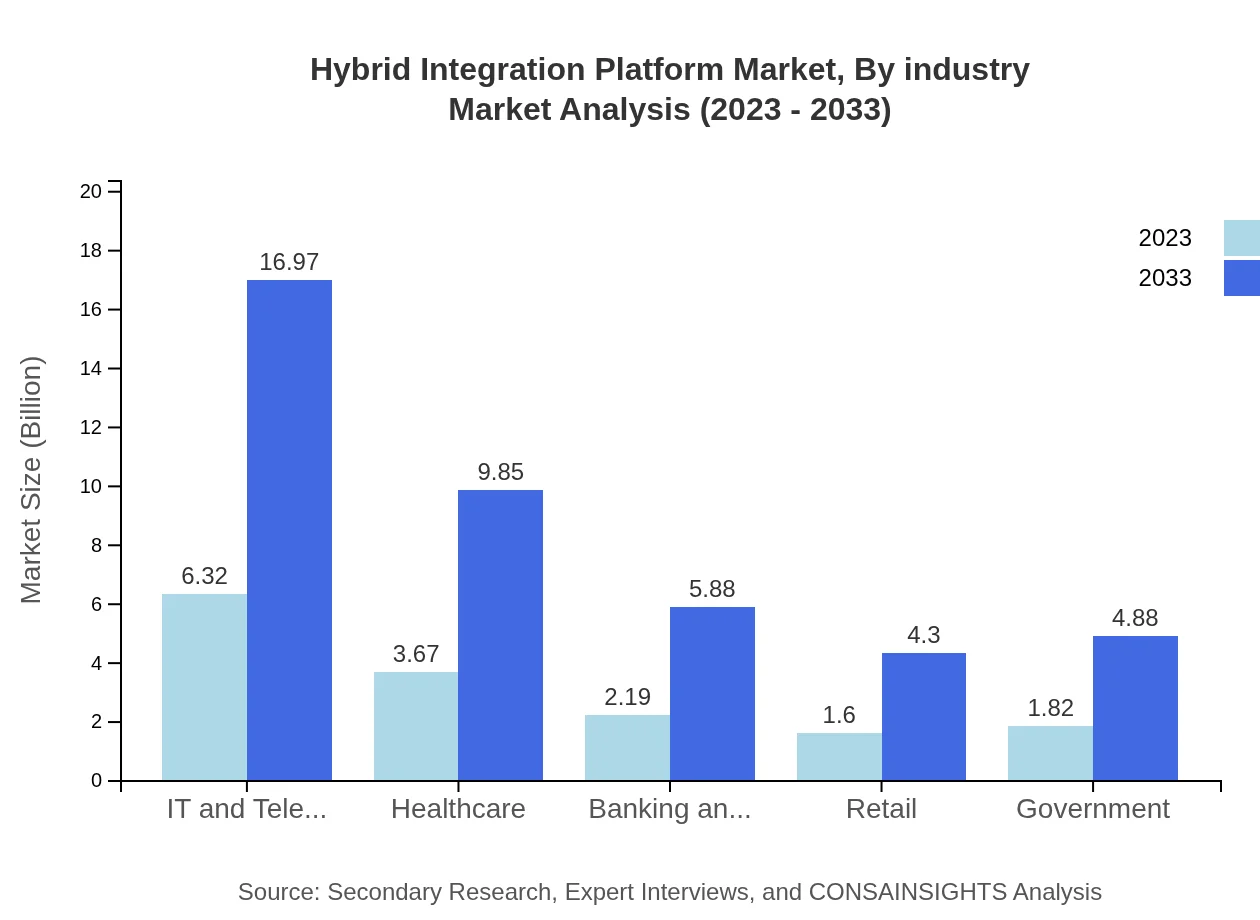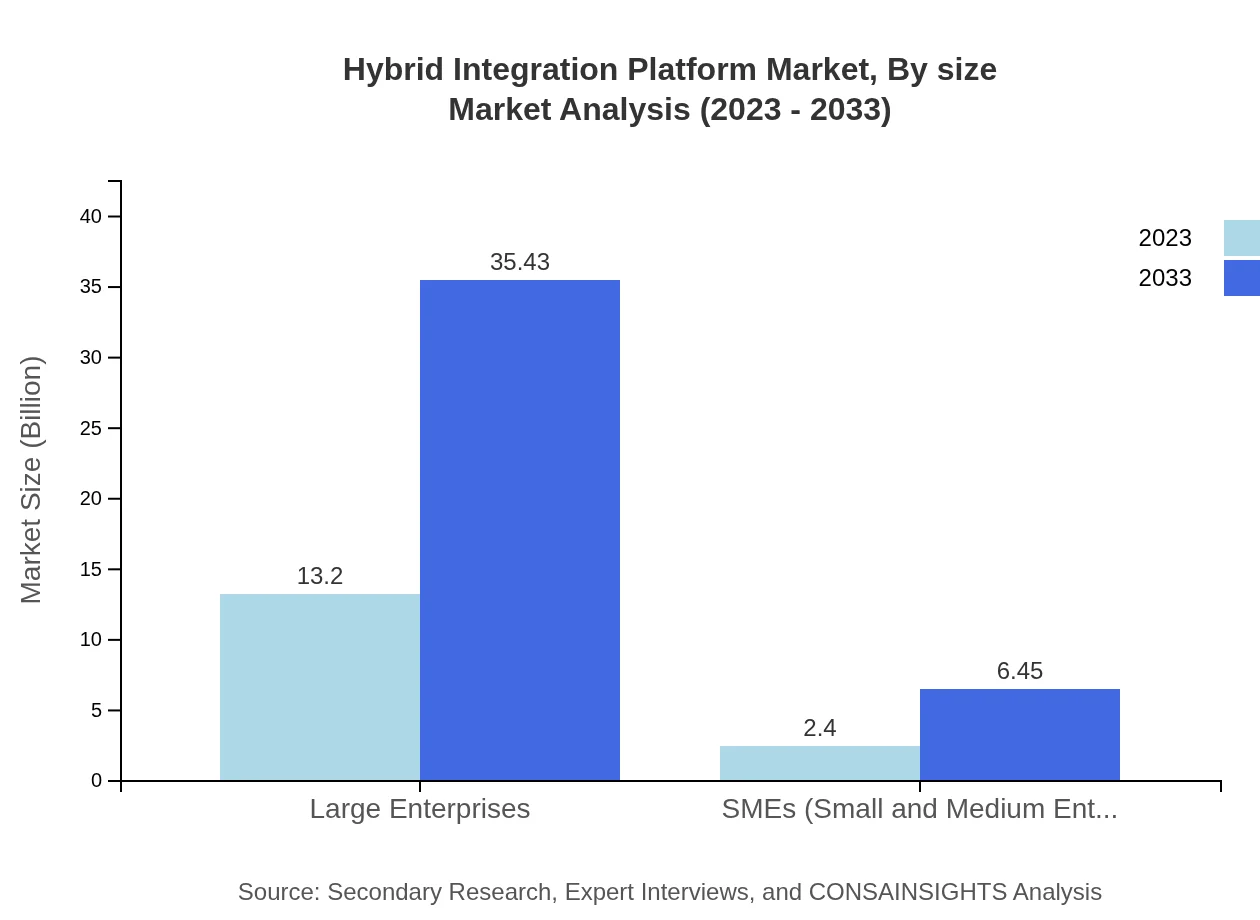Hybrid Integration Platform Market Report
Published Date: 31 January 2026 | Report Code: hybrid-integration-platform
Hybrid Integration Platform Market Size, Share, Industry Trends and Forecast to 2033
This report provides an in-depth analysis of the Hybrid Integration Platform market, exploring market size, growth drivers, regional insights, and future trends from 2023 to 2033.
| Metric | Value |
|---|---|
| Study Period | 2023 - 2033 |
| 2023 Market Size | $15.60 Billion |
| CAGR (2023-2033) | 10% |
| 2033 Market Size | $41.88 Billion |
| Top Companies | MuleSoft, Dell Boomi, IBM, Microsoft Azure, TIBCO Software |
| Last Modified Date | 31 January 2026 |
Hybrid Integration Platform Market Overview
Customize Hybrid Integration Platform Market Report market research report
- ✔ Get in-depth analysis of Hybrid Integration Platform market size, growth, and forecasts.
- ✔ Understand Hybrid Integration Platform's regional dynamics and industry-specific trends.
- ✔ Identify potential applications, end-user demand, and growth segments in Hybrid Integration Platform
What is the Market Size & CAGR of Hybrid Integration Platform market in 2023?
Hybrid Integration Platform Industry Analysis
Hybrid Integration Platform Market Segmentation and Scope
Tell us your focus area and get a customized research report.
Hybrid Integration Platform Market Analysis Report by Region
Europe Hybrid Integration Platform Market Report:
The European Hybrid Integration Platform market was valued at around $4.92 billion in 2023 and is forecasted to expand to $13.21 billion by 2033. Companies in Europe are prioritizing digital connectivity and integration as they navigate regulatory requirements and a complex market landscape.Asia Pacific Hybrid Integration Platform Market Report:
In 2023, the Hybrid Integration Platform market in Asia Pacific is valued at approximately $2.95 billion and is anticipated to grow to about $7.91 billion by 2033. This expansion is fueled by increased investments in IT infrastructure and the rising prominence of digital transformation across various industries, particularly in emerging economies.North America Hybrid Integration Platform Market Report:
North America holds a significant share of the market, valued at $5.42 billion in 2023 and projected to reach $14.54 billion by 2033. The region's leadership is attributed to the presence of major technology providers and high adoption rates of cloud-based solutions by enterprises.South America Hybrid Integration Platform Market Report:
The South American market is smaller but is expected to show robust growth from $0.87 billion in 2023 to $2.33 billion by 2033. Latin America is witnessing a surge in demand for hybrid solutions as businesses modernize their digital platforms to compete globally.Middle East & Africa Hybrid Integration Platform Market Report:
The Middle East and Africa market stands at $1.45 billion in 2023, expected to grow to approximately $3.89 billion by 2033. Organizations in this region are increasingly recognizing the importance of integration platforms to enhance operational efficiency and support digital initiatives.Tell us your focus area and get a customized research report.
Hybrid Integration Platform Market Analysis By Product
Integration Software remains dominant, with a market size of $10.22 billion in 2023, increasing to $27.44 billion by 2033, while Middleware and Services contribute significantly, reflecting the varied needs of organizations facing integration challenges.
Hybrid Integration Platform Market Analysis By Application
The IT & Telecom sector leads in terms of market share, accounting for approximately $6.32 billion in 2023. Other sectors include Healthcare and Banking, which showcase significant growth potential as industries digitize and require robust integration strategies.
Hybrid Integration Platform Market Analysis By Deployment Mode
Organizations demonstrate a preference for On-Premises solutions, valued at $10.22 billion in 2023, while Cloud deployment is gaining traction, driven by the need for scalability and flexibility in enterprise operations.
Hybrid Integration Platform Market Analysis By Industry
Large Enterprises dominate the market, representing a size of $13.20 billion in 2023. Conversely, SMEs are also showing growth, with a forecast of $2.40 billion by 2023, highlighting the broadening adoption of integration platforms across different organization sizes.
Hybrid Integration Platform Market Analysis By Size
The market is segmented into Large Enterprises and SMEs, with Large Enterprises maintaining a strong share of approximately 84.59% in 2023. SMEs, while smaller, are expected to increase their market share as they realize the importance of integration solutions.
Hybrid Integration Platform Market Trends and Future Forecast
Tell us your focus area and get a customized research report.
Global Market Leaders and Top Companies in Hybrid Integration Platform Industry
MuleSoft:
MuleSoft offers robust integration solutions that help organizations connect applications, data, and devices with ease, emphasizing API-led connections.Dell Boomi:
Dell Boomi provides cloud-based integration services, aiming to simplify the connection of applications and data between on-premises and cloud environments.IBM:
IBM's integration platforms focus on enabling enterprises to achieve digital transformation by providing advanced tools for managing hybrid environments effectively.Microsoft Azure:
Microsoft Azure integrates cloud services and solutions tailored for enterprises, strengthening their digital ecosystems through seamless integration capabilities.TIBCO Software:
TIBCO Software specializes in analytics and integration solutions, facilitating improved business decisions and driving user engagement through robust integration.We're grateful to work with incredible clients.









FAQs
What is the market size of Hybrid Integration Platform?
The global Hybrid Integration Platform market is projected to reach approximately $15.6 billion by 2033, growing at a CAGR of 10% from 2023. Such a substantial market size reflects the increasing need for integration solutions among diverse enterprises globally.
What are the key market players or companies in this Hybrid Integration Platform industry?
Key players in the Hybrid Integration Platform industry include major companies specializing in integration solutions and technologies, contributing to the market's robust growth and innovation through their advanced products and services.
What are the primary factors driving the growth in the Hybrid Integration Platform industry?
The growth of the Hybrid Integration Platform industry is driven by evolving digital transformation strategies, the increasing need for seamless data integration, and the rising adoption of cloud services across various sectors globally.
Which region is the fastest Growing in the Hybrid Integration Platform?
The Asia-Pacific region is emerging as the fastest-growing area in the Hybrid Integration Platform market, with a projected increase from $2.95 billion in 2023 to $7.91 billion by 2033, demonstrating strong demand and technological adoption.
Does ConsaInsights provide customized market report data for the Hybrid Integration Platform industry?
Yes, ConsaInsights offers customized market report data tailored to the specific needs of clients in the Hybrid Integration Platform industry, enabling businesses to obtain insights that address their unique requirements and market dynamics.
What deliverables can I expect from this Hybrid Integration Platform market research project?
Expect detailed market analysis reports, data visualizations, predictive analytics, and actionable insights tailored to your business needs, ensuring strategic decision-making in the Hybrid Integration Platform market.
What are the market trends of Hybrid Integration Platform?
Market trends in the Hybrid Integration Platform industry include increased focus on API management, integration-as-a-service solutions, and growing importance of real-time data access, which are essential for companies adapting to digital ecosystems.

